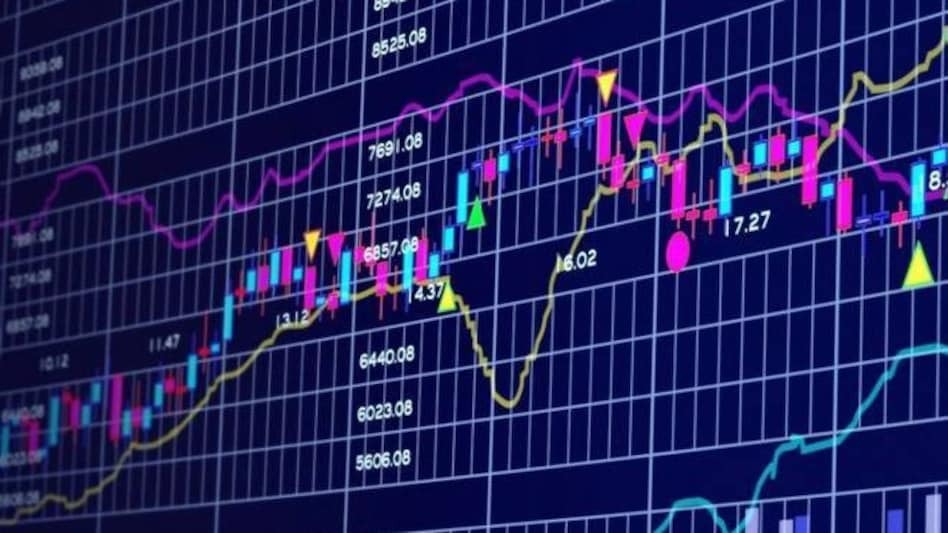The stock market is a great opportunity for investors who want to invest their money. In this content, we will list the terms that new investors entering the stock market must know.
Stock market terms may be confusing to new investors. “Volatility”, “short position”, “long position” etc. Many words are just a few of the terms you will encounter when you enter the world of investment.
““I’m thinking of entering the stock market, but I don’t understand anything mentioned.” In this content, in which we will reduce the confusion of new investors to some extent, we will talk about the basic terms that every investor should learn.
First of all, “What is the stock market?” Let’s answer the question.
Exchange, shares, etc., accompanied by rules regulated by the state. It is the place where financial instruments are traded. In simpler terms, the stock market is a financial marketplace that trades at certain hours.
The stock market, which works with an electronic system, provides information for certain assets. open, orderly and fair to all provides a trading opportunity.
To summarize, the stock market is the basis for the investment instrument you want to trade. a regulated market We can say that it is.
So how does the stock market work?

Shares are traded on the stock exchange, which remains open between certain hours, at prices determined according to supply and demand. These transactions with auction logic takes place.
The buyer wants to buy a stock at the lowest level, and the seller wants to sell it at the highest level. Buyers and sellers coming together with intermediary companies at the agreed price carries out buying and selling transactions.
Prices according to supply and demand Because it is determined, share prices fluctuate throughout the day.
Let’s start with the basic concepts:

- Securities: It is the name given to movable securities such as stocks, bonds and bonds, which are considered as investment instruments.
- Stock: It is an official document expressing the shares of partners who own shares of a particular company. Shares give their owners rights such as receiving a share of company profits and voting on company affairs.
- Dividend: It is the dividend that a company distributes to its partners.
- Stock Exchange Index: Stock market indices such as Dow Jones, Nasdaq, S&P500, Ftse, BIST 100 and BIST 30 are a value composed of stocks and calculated by taking these stocks into account in different ratios. The share of each of these stocks in the index is different from each other. Examples of stock market indices are Dow Jones, Nasdaq, S&P500, FTSE, BIST 100 and BIST 30.
- Market value: It is the concept that defines the value of an asset or company in the financial market. It is calculated by multiplying a company’s number of outstanding shares by the current market price.
- Portfolio: Stocks, bonds, etc. It is a combination of financial investments created with various investment instruments.
- Bid: It is the bid price at which investors agree to buy a financial asset.
- Lot: It is the name given to the trading unit of stocks. For example, One lot means one share of stock.
- Starting price: It is the first price level traded when the market opens for trading.
- Closing price: It is the last price level traded when the market closes.
- Harka Supply: It means that a private company starts trading on the stock exchange by opening its shares to public purchase for the first time.
- Bear Market: It is called a market in which there is a decrease in prices.
- Bull Market: It is called a market where prices are rising.
- Commodity: Products such as silver, gold, copper, oil, natural gas and cotton, which are in the commodity category and traded in the markets, are called.
Terms for investment strategies:
- Long Position: A position obtained by purchasing an asset assuming that its value will increase.
- Short Position: A position obtained by borrowing an asset, assuming that its price will decrease.
- Day Trading: Strategy based on buying and selling on the same day.
- Speculation: It is the buying or selling of a financial asset with the expectation of its future value.
- Cross Trade: In a transaction in financial markets, the buyer and seller are the same person.
- Lever: It is an investment strategy that requires the use of debt to further increase the profits from investments.
Let’s continue with the analysis terms:

- Fundamental Analysis: It is a type of analysis that helps analyze the status and potential of a company with the help of financial statements and company news.
- Technical analysis: It is a type of analysis that uses data such as price and volume of a financial asset to predict future price movements with the help of graphs.
- Support Level: The price level that is thought to prevent the price of a financial asset from falling.
- Resistance Level: A price level that is thought to prevent the price of a financial asset from rising.
- Volatility: Fluctuations in the price level of a financial asset over a certain period of time.
- Formation: It is the name given to the appearances that occur as a result of the formation of certain shapes on the price chart of an asset.
- Indicator (Technical Indicators): It is the name given to technical analysis tools used to make future price predictions as a result of analyzing past data.
- Trend Line: It is the name given to the line that shows the general trend of the price of an asset.
Terms for order types placed on the stock exchange:
- Order: It is the name given to the buy and sell orders given on the stock exchanges.
- Limit Order: It is an order to buy or sell a financial asset at a predetermined price.
- Stop-Loss Order: A stop-loss order, which means “stop loss”, is a sell order to sell a financial asset when it reaches a price point determined by the investor.
- Stop-Limit Order: It is a type of order that helps investors limit their losses or protect their profits.
Let’s continue with the terms for financial products

- Derivatives: These are transactions generally carried out between two parties due to the investor’s prediction of the future value of the price of an asset. Some derivative products include:
- Futures: These are agreements to buy or sell a financial asset at a future date at a price agreed today.
- forward: Forward, known as a forward investment contract, is a contract to deliver a financial asset at a predetermined value at a future date.
- Swap: Swap contracts made between two parties are the process of exchanging two assets with equal values.
- Option: It is a contract in which the right to buy or sell an asset at a predetermined price within a specified maturity is obtained.
- Call option: It is the right to buy an asset at a certain price.
- Put option: It is the right to sell an asset at a certain price.
- Bond: It is a debt instrument issued by the state or a private company for the purpose of borrowing and sold to investors at a certain interest rate.
- Bond: They are short-term debt instruments that are repurchased by paying interest on their nominal value in a certain period of time.
- Repo: It is the sale of a short-term security, such as a treasury bill or government bond, with the promise of repurchase by the seller at the end of a certain period.
- Reverse Repo: It is the process of purchasing a financial asset for a certain period of time and then selling it back.
- Eurobond: These are securities issued by a country or institution in another currency rather than its own national currency.
People who will enter the stock market Must-know stock market terms In this content we have compiled, we aimed to enlighten the path of investors in their stock market adventure. Let us end our content here by reminding you that our content does not constitute investment advice.
Our other content that may interest you:
RELATED NEWS
35 Basic Concepts That Those Who Will Enter the Cryptocurrency Market for the First Time Must Learn Urgently
RELATED NEWS
Just as a joke, we compared Meme Coins, which have reached billion-dollar market values, with our giant companies in Borsa Istanbul!
RELATED NEWS
